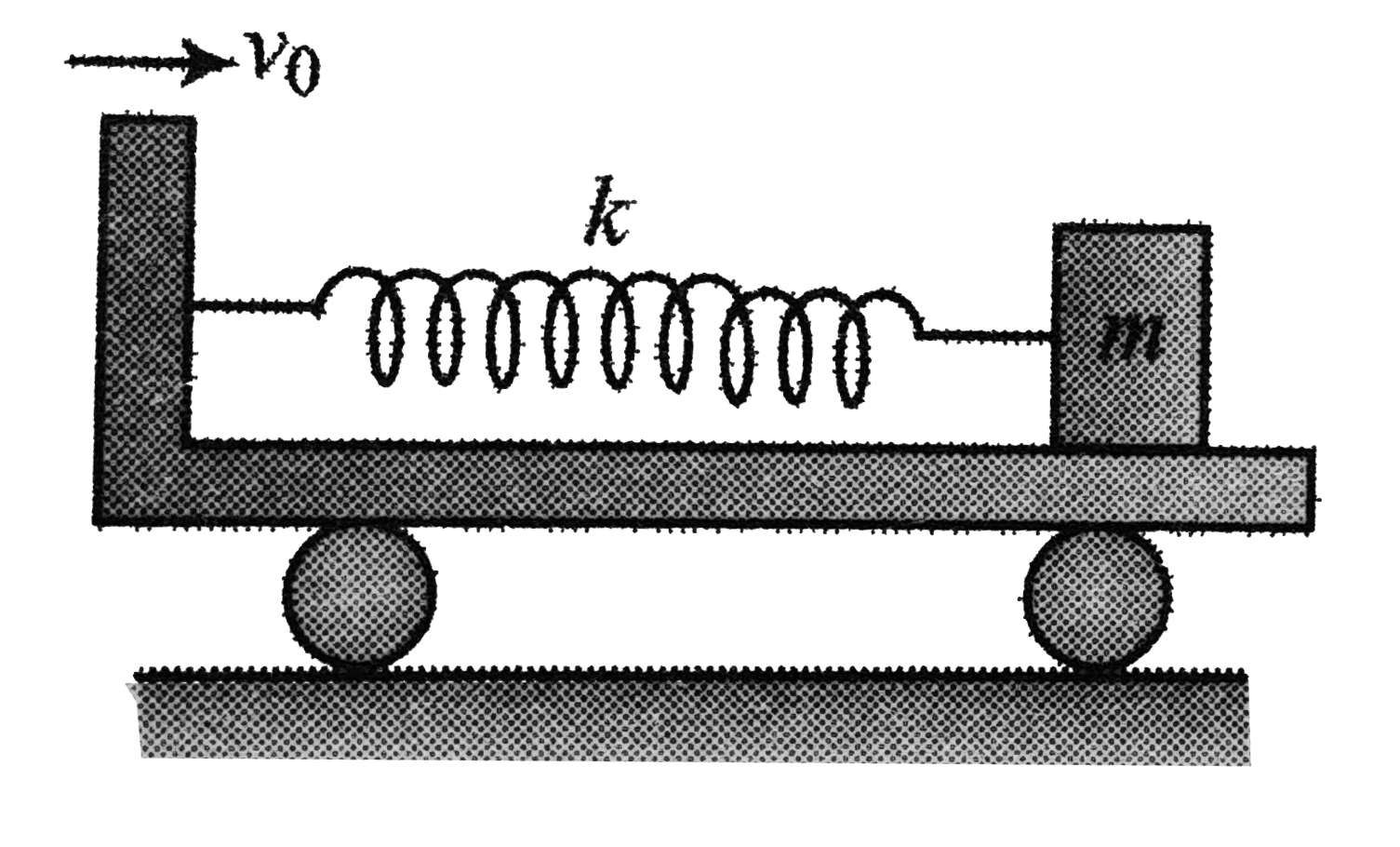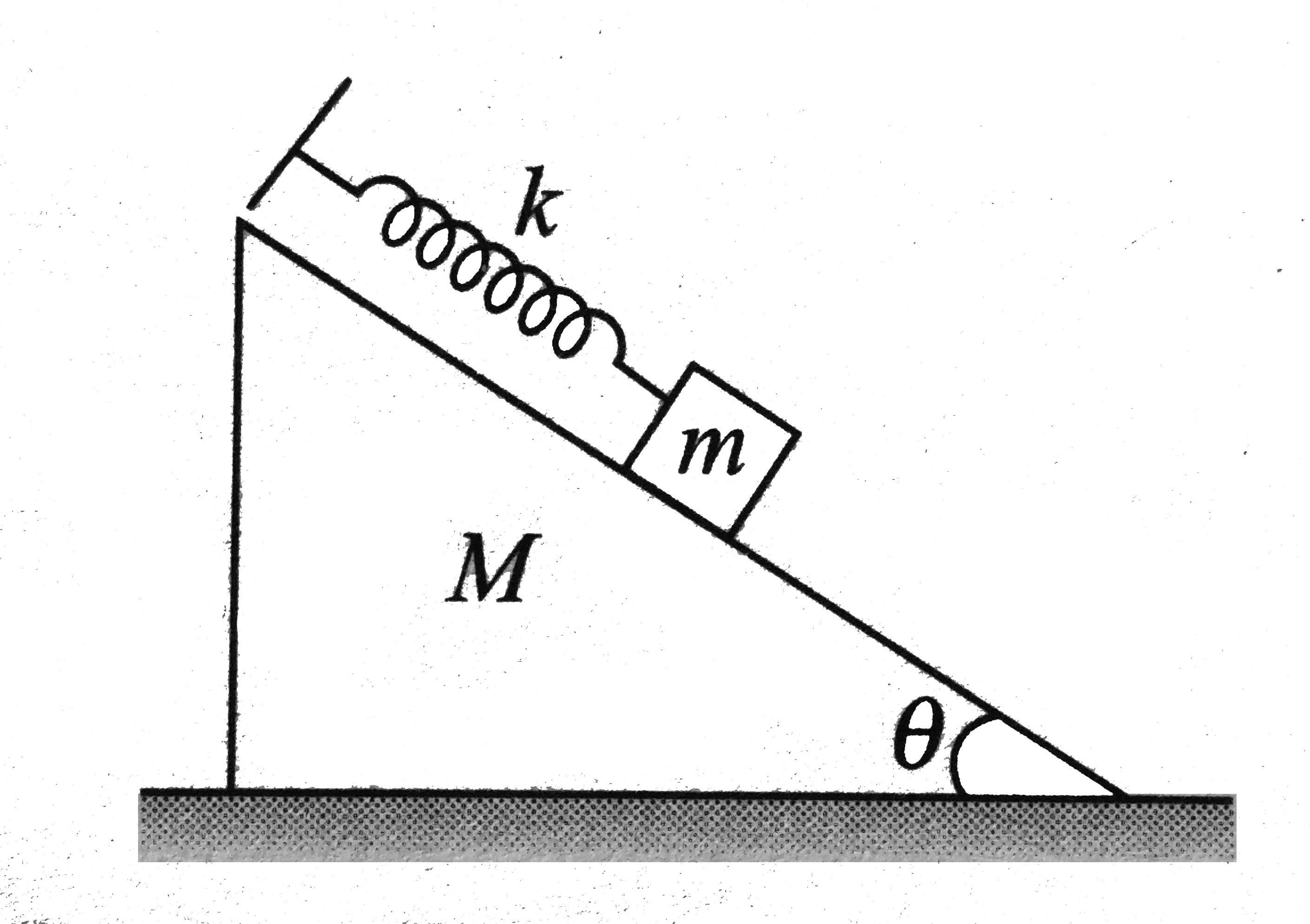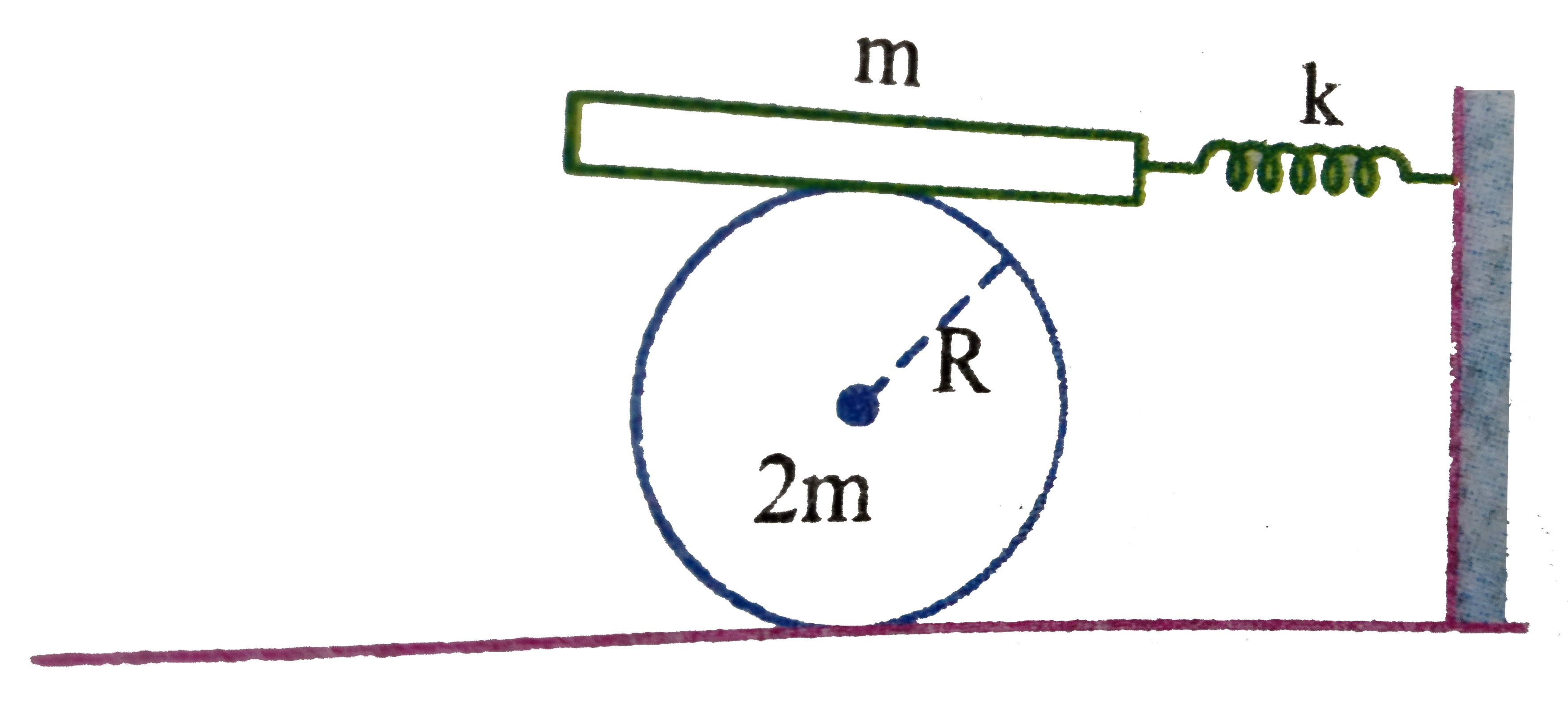A block of mass 1 kg is connected with a smooth plank of the same mass is performing oscillations. The value of the spring constant is 200Nm−1 The block and the plank are free to move and there is no friction anywhere. The angular frequency of the oscillation is ω rad s−1 Find the value of ω
The correct Answer is:20
Step by step video, text & image solution for A block of mass 1 kg is connected with a smooth plank of the same mass is performing oscillations. The value of the spring constant is 200 N m^(-1) The block and the plank are free to move and there is no friction anywhere. The angular frequency of the oscillation is omega rad s^(-1) Find the value of omega by Physics experts to help you in doubts & scoring excellent marks in Class 12 exams.
Updated on:21/07/2023Topper's Solved these Questions
Similar Questions
Knowledge Check
Spring of spring constant 1200Nm−1 is mounted on a smooth fricationless surface and attached to a block of mass 3kg. Block is pulled 2cm to the right and released. The angular frequency of oscillation is
_S01_037_Q01.png) A5rad/secB30rad/secC10rad/secD20rad/sec
A5rad/secB30rad/secC10rad/secD20rad/secA block is placed on a frictionless horizontal table. The mass of the block is m and springs are attached on either side with force constants K1andK2 . If the block is displaced a little and left to oscillate, then the angular frequency of oscillation will be
A(K1+K2m)1/2B[K1+K2m(K1+K2)]1/2C[K1+K2(K1−K2)m]1/2D[K1K2(K1+K2)m]1/2A block of mass m is connected to another block of mass M by a spring (massless) of spring constant k. The block are kept on a smooth horizontal plane. Initially the blocks are at rest and the spring is unstretched. Then a constant force F starts acting on the block of mass M to pull it. Find the force of the block of mass M.
A(a) MF(m+M)B(b) mFMC(c) (M+m)FmD(d) mF(m+M)
A block of mass m is connected rigidly with a smooth wedge (plank) by a light spring of stiffness k. If the wedge is moved with constant velocity v0, find the work done by the external agent till the maximum compression of the spring.

View SolutionA block of mass m connected with a smooth prismatic wedge of mass m is released from rest when the spring is relaxed. Find the angular frequency of oscillation.

View SolutionA uniform plank of mass m=1kg, free to move in the horizontal direction only, is placed at the top of a solid cylinder of mass 2m and radius R. The plank is attched to a fixed wall by means of light spring of spring constant k=7N/m2. There is no slipping between the cylinder and the plank, and between the cylinder and the ground. the angular frequency of small oscillations of the system is

View SolutionA block of mass 'm' is connected to another block of mass 'M' by a spring (massless) of spring constant 'k' The blocks are kept on a smooth horizontal plane. Initially the blocks are at rest and the spring is unstretched Then a constant force 'F' starts acting on the block of mass 'M' to pull it. Find the force on the block of mass 'm' :
View SolutionA block of mass m is connected at one end of spring fixed at other end having natural length l0 and spring constant K. The block is rotated with constant angular speed (ω) in gravity free space. Find the elongation in spring.
View Solution

